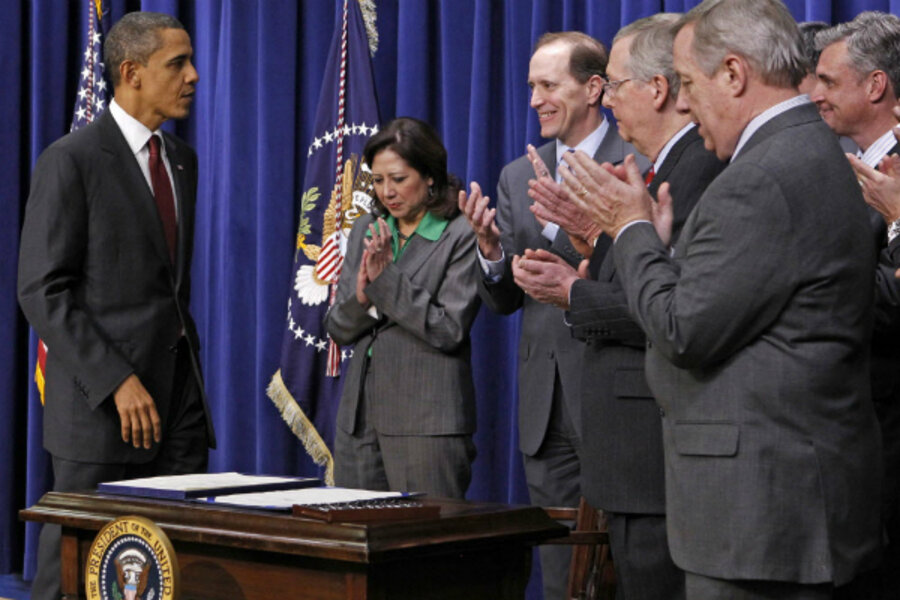After the election, more than $600 billion in higher taxes and lower spending will slam the economy come Jan. 1 unless Congress and the new president take action. This comes in the form of the expiration of the Bush tax cuts, the end of the payroll tax reduction, a hike in the estate tax, and the failure to patch the Alternative Minimum Tax (AMT), which Congress fixes annually to prevent it from snaring millions of middle-class Americans.
Then there’s the automatic budget cuts put into place by 2011’s debt-ceiling deal that would crunch spending on both the Republican priority of defense and the Democratic priority of social services.
The candidates are in agreement here: Put the issue off until 2013. Romney has said he would like the Congress to pass legislation pushing all of these weighty issues into 2013 so that his administration could deal with them. He’s called for six months to a year of “runway” – which seems to be code for putting the whole thing off into 2013 – in order for the next president to achieve tax reform and other sweeping changes to America’s taxing and spending structure.
Obama argues that avoiding the fiscal cliff is best done through a large debt proposal that includes higher taxes on the wealthy in exchange for cuts to government spending, as detailed previously. But with both sides unwilling to budge on the tax question, there have been no substantive negotiations toward avoiding the fiscal cliff between the White House and Congress this summer. Thus Obama is playing for a punt, too.







